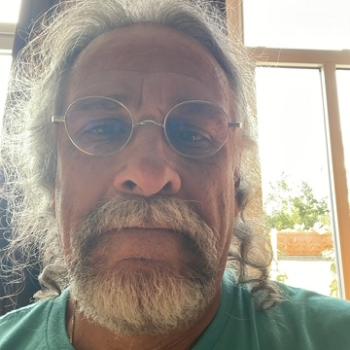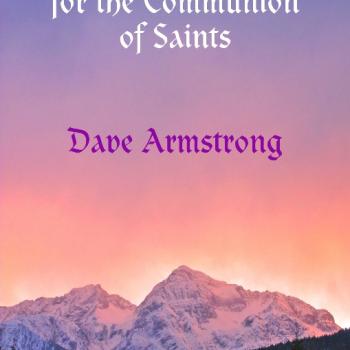
“Sing a song full of the faith that the dark past has taught us. Sing a song full of the hope that the present has brought us.” So reads a profound line in what is known as “The Black National Anthem,” Lift Every Voice and Sing, a hymn written as a poem by NAACP leader James Weldon Johnson in 1900.
We have profound gratitude for the faith and hope of those who worked so hard to bring us where we are today. Today we speak of a holiday that those in the United States and beyond now recognize officially: Juneteenth.
Holidays are not only an opportunity to remember past events, but they also create cultural unity, teach values associated with them, establish traditions, and invoke nostalgia, which breeds hope and nurtures faith. The word holiday is more than a thousand years old, originally referring to a holy day, recognizing significant religious events. How does your own faith support this holy day? What can it represent for you personally?
Juneteenth originates on June 19, 1865, two and a half years following President Lincoln’s enactment of the Emancipation Proclamation to free “all persons held as slaves” within specific areas of the United States. The Proclamation spread and finally arrived in its final destination of Galveston, Texas. Enslaved African-Americans there were finally told they were free. For more than a hundred years many have celebrated this holiday.
On June 17, 2021, U.S. President Joe Biden signed a bill into law, making Juneteenth an official national holiday. We at Patheos celebrate this historic event which will hopefully unite more of us in ending the lasting injustices within the United States and across the world.
Many faiths around the world are united against slavery and racism. In 2014, world religious leaders came together and created the Signed Declaration of Religious Leaders Against Modern Slavery “to inspire spiritual and practical action by all global faiths and people of good will everywhere to eradicate modern slavery across the world.” Juneteenth is a step in this country to acknowledge the wrongs of its past with legal slavery, and an opportunity for us all to act against modern-day slavery and racism.
Those who adhere to various religions can unite to heal and make change. Many of the world’s religions and believers declare with unwavering commitment the dignity of the human soul and promote the ideals of what Juneteenth represents.
*
Buddhism
Soka Gakkai International-USA is focusing its monthly discussion in June on Juneteenth because “Buddhism exists to transform the inhumanity that exists within people’s hearts.” Furthermore, as Daisaku Ikeda, founding president of the Soka Gakkai International wrote, “Our lives and the lives of others are ultimately inseparable.”
Catholicism
His Holiness Pope Francis encourages people to practice the Catechism, the Ten Commandments and the Beatitudes when engaging in social justice and says, “if you follow Christ, you understand that ‘trampling upon a person’s dignity is a serious sin’.”
Hinduism“No one is superior or inferior; all are brothers; all should strive for the interest of all and progress collectively.” - RigVeda, Mandala-5, Sukta-60, Mantra-5
“Our sacred texts teach us to oppose practices and policies that harm any community.” - Samir Durvasula, Sadhana Executive Board Member
Islam
Amer Aziz of Ahmadiyya Muslim Community recounted a story in conjunction with Juneteenth that Prophet Muhammad told someone that the one act that could grant paradise would be to free a slave. Aziz continues with a reminder that the Quran “emphasizes not just the freeing of slaves, but according them with rights and means.”
In their journal article, Sayyid Mohammad Hasan Lavasani and Seyed Mohammad Kalantarkousheh illustrate how human dignity regardless of nation, race or religion, is taught in several verses of the Quran.
Judaism
“The Mishnah in Sanhedrin (4:5) indicates that the reasons the first human was created singly are to teach the infinite worth of every person; that each person is unique; and that all are equal (‘so that none may say, my father was greater than yours.’) These ideas are rooted in the Biblical message that every human person is created in the Divine Image (Genesis 1:27.) Accordingly, any kind of negative prejudice toward another on the basis of how she or he was created, is in fact an anathema for Judaism. …
The recent explosions of resentment around the world against racist behavior must galvanize the Jewish community to be even more in the forefront of the struggle against racism.
This is our duty to our own historical experience of bigotry and racism; to our own heritage; and above all to the Lord of Creation Himself who created every human person in the Divine Image with inalienable dignity.” - Rabbi David Rosen KSG CBE, the American Jewish Committee’s International Director of Interreligious Affairs
Latter-day Saint
“We invite all to pray to God that the people of this land will heed the Divine call to abandon attitudes of prejudice against any group of God’s children.” – President Russell M. Nelson of The Church of Jesus Christ of Latter-day Saints with the NAACP’s President Derrick Johnson, Chairman of the Board Leon Russell and Chairman Emeritus of Religious Affairs The Reverend Amos C. Brown
Protestantism (Baptist, Episcopalian, Evangelical, General Christian, Pentecostal, and more)
“The legacy Juneteenth represents … As they were finally given hope by being emancipated, we’re now providing hope through the message of Jesus to a world that needs liberating from sin, just like the slaves were liberated from slavery.” - Pastor Gregory Perkins, The View Church
In sharing ways to pray in observance of Juneteenth, Pastor Kam Paugh of Iron City Church wrote, “Thank the Lord for how He has used His people in the past to oppose injustice and abolish institutions like slavery.” (Shared on United? We Pray)
In the Worship Resources for Juneteenth offered by The African American Pulpit Inc, A Christian Affirmation of Juneteenth counsels congregations that this day is “to serve as a reminder of our tenacity, our ability to hold on to hope and to our God.”
Among the many dioceses that encourage observation of Juneteenth, the Episcopal Church in West Missouri has provided liturgical resources that can be offered near the holiday. The rector of Ephiphany Seattle also encouraged followers of Jesus Christ to read the Emancipation Proclamation as a way to celebrate the “jubilee” of Juneteenth.
Ken Wheeler, retired Pastor at Cross Lutheran Church makes Juneteenth a personal reminder to remember those who suffered and fought for our freedoms and to continue the personal fight to keep and enlarge that freedom for the generations who follow.
*
In the Old Testament – when God sent the prophet Samuel to the house of Jesse the Bethlehemite, to choose from among his sons the next king of Israel – an important lesson is taught to us all. “When [Jesse and his sons] arrived, Samuel saw Eliab and thought, ‘Surely the Lord’s anointed stands here before the Lord.’ But the Lord said to Samuel, ‘Do not consider his appearance or his height, for I have rejected him. The Lord does not look at the things people look at. People look at the outward appearance, but the Lord looks at the heart’.” (1 Samuel 16:6-7, NIV).
In observance of Juneteenth may we unite in seeing better what God has always seen – the worth of every individual regardless of race or ethnicity.
Mark and Erin Elkins share a passion for all things uplifting - faith, family, books, art, travel, and Disneyland. Mark is also a manager with Patheos.
10/15/2021 11:46:28 PM




